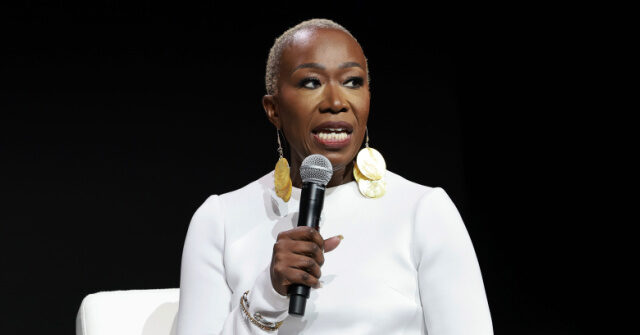Joy Reid, the MSNBC anchor, has recently made headlines by deleting her Xwitter account, a decision she explained in a TikTok video, where she expressed her frustrations with the platform. Reid, who had amassed 1.9 million followers, articulated that her reasoning was rooted in the overwhelming negativity and disrespect she encountered on the site, particularly after Elon Musk’s acquisition. While she relied on Xwitter for news aggregation, she found the experience of sifting through hostile exchanges and “drek” unworthy of her time and mental well-being. Reid’s departure is part of a broader trend of left-leaning figures stepping away from social media platforms that now feel more balanced and contentious.
In her remarks, Reid reflected the sentiment among many of her peers on the left, who have struggled to cope with the evolving dynamics of social media under Musk’s leadership. She addressed the shift in the online atmosphere, noting the prevalence of harassment and negativity that overshadowed constructive discussion. The change in Xwitter’s environment has seemed to diminish the previously existing bias that favored leftist ideologies, making it more difficult for figures like Reid to navigate a landscape where dissenting opinions and counterarguments thrive. This factor has contributed to her decision to disconnect.
Reid’s exit is emblematic of a broader pattern where leftist figures seem to retreat from public discourse when their arguments face challenges. Critics argue that the left, often perceived as intolerant of opposing viewpoints, struggles with environments that foster free speech and open debate. The normalization of free exchanges, where ideas are rigorously tested against public scrutiny, is unwelcome for many on the far left, which leads them to seek refuge in more controlled and supportive spaces. This struggle to confront dissent is seen as a weakness in their stance and understanding.
The tension between free speech and curated conversations is evident in the experiences of figures like Reid and others in similar positions. The left, reliant on the previous era of unchallenged narratives, appears to find the current landscape unbearable when faced with frequent counterarguments and criticism. The debate around the nature of discourse on social media reflects a larger ideological battle — one where the popularity and efficacy of ideas are thoroughly scrutinized. Critics assert that the current digital landscape forces leftists to confront uncomfortable truths, which they may prefer to evade.
Moreover, there’s a notion that the absence of leftist voices in certain media formats, like talk radio, stems from the inability of those perspectives to withstand rigorous public evaluation. As Reid and her colleagues opt out of spaces where they once thrived, it challenges the sustainability and acceptance of their ideas in a more open environment. This withdrawal highlights a perceived fear of intellectual engagement that could expose flaws in their arguments, thereby reinforcing the idea that, without favorable conditions, their perspectives falter.
The recent actions of Reid and similar figures signify a shift in how public discourse is navigated by those with leftist views. Their departures from platforms like Xwitter echo a refusal to endure the rigors of open debate in an arena no longer skewed in their favor. For some, it is easier to retreat to echo chambers where they are assured support rather than face the harsher realities of public scrutiny. Ultimately, the changing dynamics of social media may dictate how ideologies are communicated and contesting ideas are received, reshaping public dialogue in profound ways.

